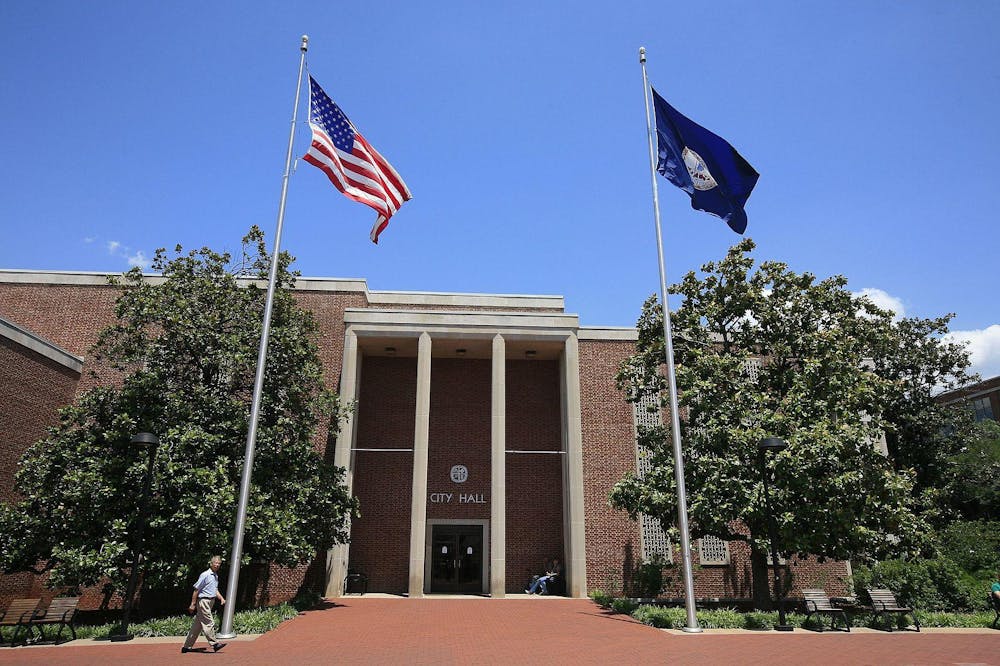Homelessness in Charlottesville has nearly doubled since 2017, rising from approximately 115 to 228 unhoused people. Yet even as the crisis has grown, the city has continued to focus its resources on temporary relief rather than long-term solutions, leading to a deepened cycle of instability. Most recently, it slashed housing services by 57 percent in its 2025 budget — a move that undercuts the very infrastructure needed to break that cycle. The city has made several past efforts to reduce homelessness, but the growing number of unhoused people suggests that these temporary solutions are simply not enough. We cannot afford to treat housing as a solely temporary fix — it is imperative that local officials invest in permanent solutions as well.
Charlottesville currently has only two overnight shelters — PACEM, which provides just 25 beds and only operates during the winter months, and the Salvation Army, which offers 58 beds year-round. These options are woefully inadequate for a growing unhoused population of over 200 individuals. Beds alone may not solve homelessness, but if the city seriously expects to address homelessness it must, at the very least, provide enough beds to support its unhoused population.
In the 2025 budget, Charlottesville expressed an intent to prioritize affordable housing development — including projects like the Westhaven and Friendship Court redevelopments — but simultaneously cut funding for direct housing programs. This contradiction highlights a fundamental problem — while long-term development is important for improving overall affordability, addressing homelessness requires immediate investment in subsidized housing that gets people off the streets now and connects them with the support they need to rebuild stable lives.
The city’s focus on either long-term housing development or temporary relief, without a comprehensive approach that addresses both, shows that this crisis is not being treated with the urgency it demands. This is especially troubling given that 33 percent of unhoused individuals struggle with substance addiction and 54 percent have experienced incarceration. These challenges often require stable housing as a foundation for recovery and reintegration, meaning cuts to housing services can make long-term solutions even harder to achieve.
Unlike affordable housing, which focuses on reducing rent to below market rates, subsidized housing directly helps individuals by covering the gap between their income and the cost of rent, making it a more immediate and effective solution to homelessness. Under the Section 8 housing program, for example, landlords receive 30 percent of a tenant’s monthly income as rent, and the government covers the rest. Charlottesville could adopt a similar model, subsidizing housing costs while also providing job placement and support services. Despite the initial spending this would require, this approach has a strong potential to provide a more permanent solution, offering both long-term stability and significant public savings.
Other cities, like Houston and Salt Lake City, have successfully cut homelessness rates and saved taxpayer money through “Housing First” programs, which are long-term solutions that prioritize getting individuals into stable housing before addressing other challenges like employment, addiction or mental health. But Charlottesville needs a more integrated approach — one that doesn’t just sequence support, but delivers it simultaneously. Stable housing should come hand-in-hand with job placement services, mental health care and addiction recovery resources from the very beginning. While the upfront costs of subsidized housing and support programs may seem high, with the right support afterwards, they pay dividends in the long run and save cities millions by reducing the need for emergency medical care, policing, incarceration and constant shelter expansion.
Another way of looking towards addressing homelessness in Charlottesville involves addressing the long-term health and social challenges that often keep people unhoused. There are currently some strong efforts in place for this, such as various hotlines and outreach programs that target mental health, substance abuse and other issues that contribute to homelessness or that unhoused people may experience. Still, these efforts alone are not enough. Without a city-led commitment to a permanent “Housing First” program, homelessness will likely continue to rise, straining existing resources.
Executing this plan would have countless positive ripple effects on the community as a whole. When people have a reliable place to live, they are more likely to find steady employment, access healthcare and stay out of the criminal justice system. Studies have shown that formerly incarcerated individuals who receive housing assistance are significantly less likely to reoffend, and that stable housing improves job retention and reduces dependence on emergency services. These ripple effects not only improve quality of life for the individuals involved, but also lighten the load on hospitals, police departments and social services. By investing in permanent housing, Charlottesville has the chance to break the cycle of homelessness and incarceration, fostering long-term stability and strengthening the fabric of the community as a whole.
This kind of impact will only happen if local officials begin treating homelessness as the long-term public crisis it is — not just a seasonal inconvenience. Even though the 2026 budget is already set, Charlottesville could brace for meaningful change by making subsidized housing a top priority in 2027. The city should begin setting the programs up now to ensure that by 2027, they will have already identified the people for the program and set up the infrastructure, partnerships and funding mechanisms needed to launch it effectively. The city must be ready to act, not just plan.
Ryan Cohen is a viewpoint writer who writes about economics, business and housing for The Cavalier Daily. He can be reached at opinion@cavalierdaily.com.
The opinions represented in this column are not necessarily those of The Cavalier Daily. Columns represent the views of the authors alone.







